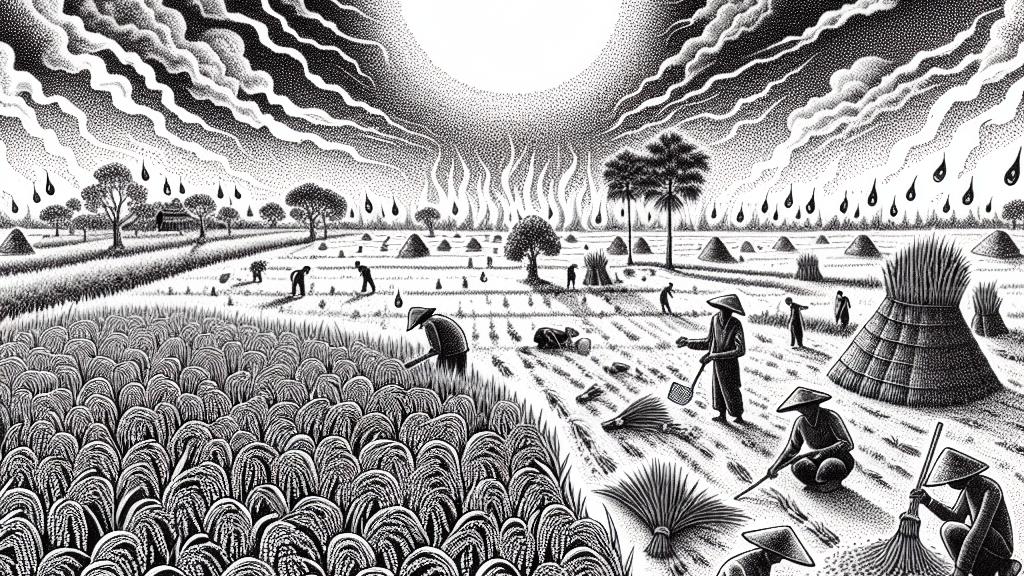Enhancing Rice Yields with Zinc Oxide Nanoparticles During Heat Waves
Overview
- A groundbreaking study reveals that zinc oxide nanoparticles could significantly enhance rice yields during extreme heat waves.
- These nanoparticles not only shield crops from temperature stress but also improve the nutritional value of the grains.
- This innovative approach could play a pivotal role in safeguarding food security amid the escalating impacts of climate change.

Confronting the Climate Crisis in Agriculture
Agriculture faces an urgent crisis, particularly evident in rice-producing regions like China, where heat waves are becoming more frequent and severe. The threat is alarming; research indicates that extreme heat can shrink rice yields by 50% or more, directly threatening food security for millions. For instance, many farmers are already grappling with these challenges, witnessing firsthand how such climatic fluctuations can devastate their crops. This intensifying situation demands innovative solutions that empower farmers to adapt and thrive, not merely survive.
Unleashing the Benefits of Zinc Oxide Nanoparticles
Recent findings from horticulturists reveal the powerful potential of zinc oxide nanoparticles (ZnO NPs) as a remedy for the agricultural challenges posed by climate change. Through meticulous experiments in climate-controlled greenhouses, researchers found that rice plants treated with a zinc oxide nanoparticle spray exhibited an astonishing 22.1% increase in yield compared to those receiving only regular watering. Picture this: not only did these plants grow stronger under stress, but the grains themselves also contained higher nutrient levels, offering a double benefit of greater quantity and improved health. This incredible advancement in nanotechnology not only protects the crops but also contributes to the well-being of consumers.
Charting a Sustainable Future for Rice Cultivation
As we envision the future of agriculture, the integration of zinc oxide nanoparticles represents a promising shift toward sustainability. Farmers adopting this innovative technique can not only bolster their crops against the unpredictable nature of climate change but also enhance the overall quality of their harvests. This approach reflects a broader commitment to sustainable practices that maximize food production while preserving our natural resources. Moreover, as the global population continues to grow, methods like these will become essential in maintaining food security. Embracing such revolutionary findings is crucial; they may ultimately determine the resilience of rice farming in a warming world, ensuring that rice remains a reliable staple for generations to come.

Loading...